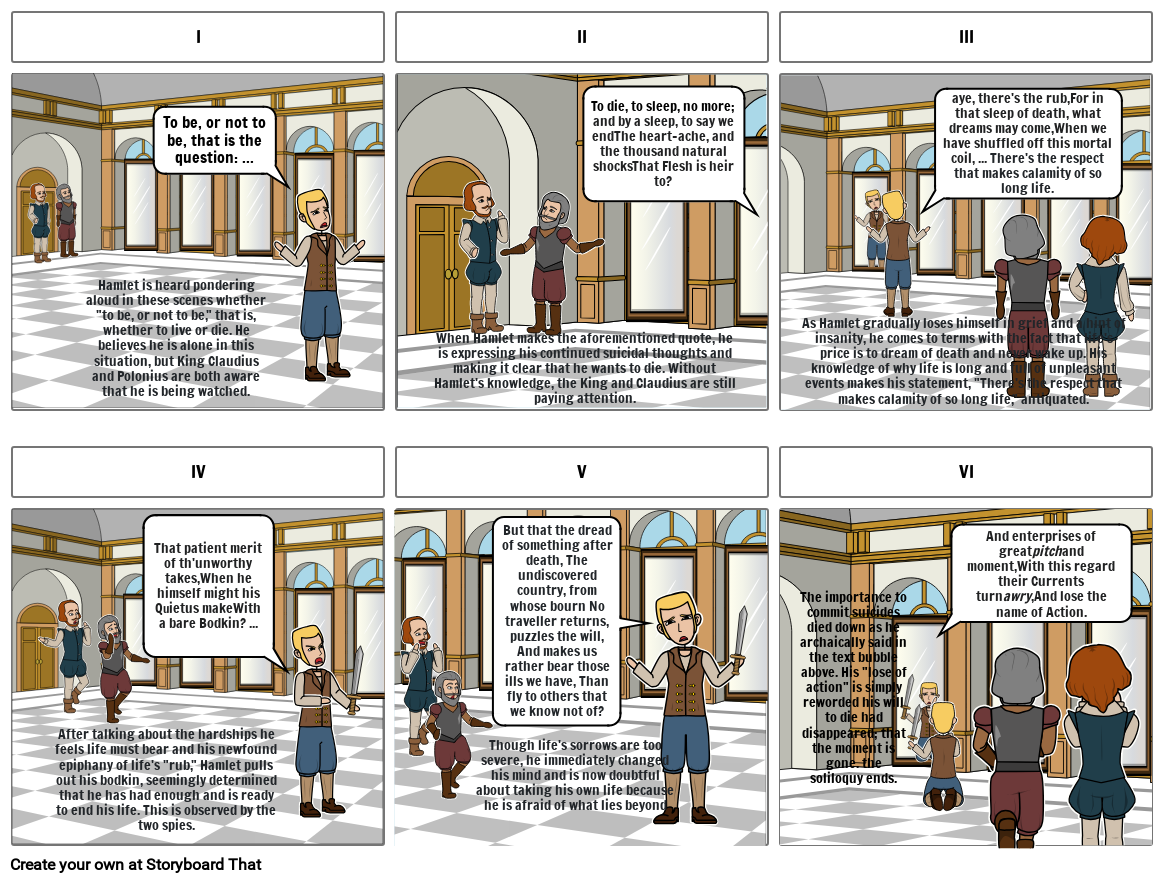Act iii

Текст Раскадровки
- Горка: 1
- I
- To be, or not to be, that is the question: ...
- Hamlet is heard pondering aloud in these scenes whether "to be, or not to be," that is, whether to live or die. He believes he is alone in this situation, but King Claudius and Polonius are both aware that he is being watched.
- Горка: 2
- II
- To die, to sleep, no more; and by a sleep, to say we endThe heart-ache, and the thousand natural shocksThat Flesh is heir to?
- When Hamlet makes the aforementioned quote, he is expressing his continued suicidal thoughts and making it clear that he wants to die. Without Hamlet's knowledge, the King and Claudius are still paying attention.
- Горка: 3
- III
- aye, there's the rub,For in that sleep of death, what dreams may come,When we have shuffled off this mortal coil, ... There's the respect that makes calamity of so long life.
- As Hamlet gradually loses himself in grief and a hint of insanity, he comes to terms with the fact that life's price is to dream of death and never wake up. His knowledge of why life is long and full of unpleasant events makes his statement, "There's the respect that makes calamity of so long life," antiquated.
- Горка: 4
- IV
- That patient merit of th'unworthy takes,When he himself might his Quietus makeWith a bare Bodkin? ...
- After talking about the hardships he feels life must bear and his newfound epiphany of life's "rub," Hamlet pulls out his bodkin, seemingly determined that he has had enough and is ready to end his life. This is observed by the two spies.
- Горка: 5
- V
- Though life's sorrows are too severe, he immediately changed his mind and is now doubtful about taking his own life because he is afraid of what lies beyond death.
- Горка: 6
- VI
- And enterprises of greatpitchand moment,With this regard their Currents turnawry,And lose the name of Action.
- The importance to commit suicides died down as he archaically said in the text bubble above. His "lose of action" is simply reworded his will to die had disappeared; that the moment is gone. the soliloquy ends.
- Горка: 0
- But that the dread of something after death, The undiscovered country, from whose bourn No traveller returns, puzzles the will, And makes us rather bear those ills we have, Than fly to others that we know not of?
Создано более 30 миллионов раскадровок
Никаких Загрузок, Кредитной Карты и Входа в Систему не Требуется!
